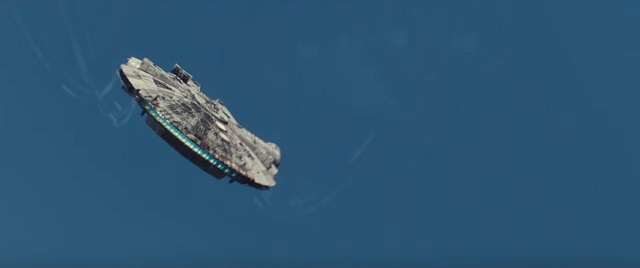
One of the best aspects of literature is ambiguity; ambiguity that leaves important scenes up for speculation and exploration that causes discussion for years to come. At the end of the novelization of The Force Awakens, the narration tells us “Remembering, Rey reached into her pack and removed [Luke’s] lightsaber. Taking several steps forward, she held it out to him. An offer. A plea. The galaxy’s only hope.” In context, I think the narration makes it seem that Luke is the galaxy’s only hope. But how is he the galaxy’s hope? Does Rey imagine that Luke is going to bring the galaxy together under the Resistance? Does she want Luke to come out of hiding and kill Kylo? I think the direction of the plot subtly moves us into accepting a different ending: that Rey, fully trained by Luke as a Jedi, is the galaxy’s only hope.
What makes me think this? The symbolism in Star Wars. The franchise is not afraid of stretching its visuals to their furthest capacity, leading to some rich storytelling that doesn’t rely solely on the narration to tell every part of the story. But how does The Force Awakens’ symbolism specifically point to Rey as the galaxy’s only hope? It’s too easy to point out Rey’s similarities to Luke, as many have already done. No, the way forward is to look at some of the differences between the two. I think there’s an unexplored area of the movie that we should look at: the symbol of ascent. The symbol of ascent is all over the movie, as the movie starts in the night, in the middle of a desert world and ends on top of a mountainous island in the middle of the day. In many ancient worldviews, “ascension” meant many things: it symbolized a movement from death to life, it symbolized the ritual practitioner’s ascent into heaven, or maturity. Ascension was necessary in many worldviews because the ground was death: to descend was to enter Hades or Sheol, and to stay on the ground was to be tied to the material world rather than the spiritual world. Kosignas, the priest-king of a town in Greece, builds a ladder to Hera to leave the world; the prophet Jonah descends into the sea and into the fish to escape God, comparing it to living in Sheol; the Rig Veda shows the first man who died climbing mountains to show people about life after death; early Gnostics wanted to ascend to heaven to escape the evil material world. Read More
